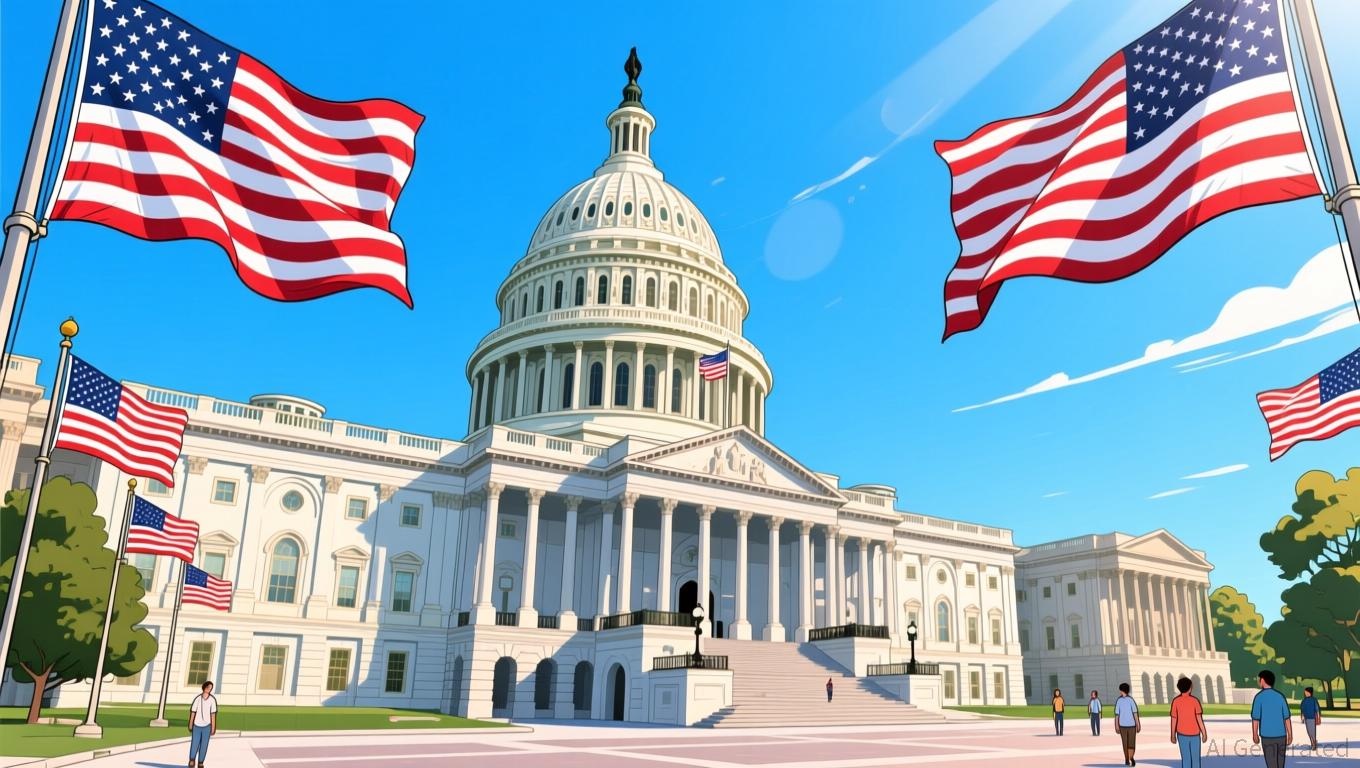The MMT Token TGE: Ushering in a New Era for Real-World Asset Tokenization?
- MMT Token's 2025 TGE sparked speculation about tokenized RWAs and institutional blockchain infrastructure, leveraging hybrid tokenomics and regulatory alignment. - Institutional backing from Coinbase , Circle , and Sui's high-throughput infrastructure supports MMT's goal of bridging DeFi with real-world assets like real estate . - Tokenomics include 20% DEX fee buybacks and 15% profit burns to stabilize volatility, though 20.41% supply unlocking poses liquidity risks. - Regulatory clarity under U.S. CLAR
Strategic Implications: Institutional Backing and Blockchain Infrastructure
MMT’s platform, which operates on the
The project’s reliance on Sui’s high-capacity infrastructure is a key factor.
Market Dynamics: Tokenomics and Liquidity Management
MMT’s tokenomics are structured to manage both inflationary and deflationary forces. A key aspect is
The TGE itself saw $12 billion in DEX trading volume, with
Yet, the scheduled release of 20.41% of MMT’s supply toward the end of 2025 introduces a notable risk.
Regulatory Alignment and Institutional Adoption
Clear regulatory status has been central to MMT’s attractiveness.
Additionally, MMT’s participation in Binance’s VIP Loan program and its emphasis on tokenizing RWAs—such as real estate and private credit—reflect broader institutional trends. For example, tokenized U.S. Treasuries and corporate bonds have already shown that RWAs can effectively connect legacy finance with DeFi.
Risks and Challenges: Volatility and Supply Management
Despite its strengths, MMT’s TGE has revealed certain weaknesses.
This kind of volatility is reminiscent of previous DeFi failures, like the 2024
Conclusion: A Paradigm in the Making?
The
For those considering investment, MMT offers both promise and uncertainty. While its objectives are in line with the evolving financial landscape, numerous obstacles remain. As DeFi continues to develop, MMT’s TGE could become a benchmark for assessing the practicality of tokenized RWAs in the post-MiCA era.
Disclaimer: The content of this article solely reflects the author's opinion and does not represent the platform in any capacity. This article is not intended to serve as a reference for making investment decisions.
You may also like
Bessent: Raising the Debt Ceiling by July Is Essential to Prevent Market Turmoil
- US Treasury Secretary Bessent reiterated the economy is not at recession risk despite fiscal debates and market volatility. - He warned the debt ceiling must rise by July 2025 to avoid default, stressing "full faith and credit" is non-negotiable. - Corporate resilience (e.g., Ross Stores' strong earnings) contrasts with Fed policymakers' split on rate cuts amid inflation concerns. - Trump's $2,000 "tariff dividend" proposal faces congressional hurdles, with Bessent acknowledging it requires legislative a

Trump’s Andrews Golf Renovation: Who Pays the Taxpayer Tab?
- President Trump enlisted Jack Nicklaus to renovate aging golf courses at Joint Base Andrews, part of his White House-related construction projects. - The $300M+ portfolio raises questions about funding sources, mirroring controversies over unclarified costs for other projects like the Paris-style arch. - Nicklaus Design, with 425 global courses, will lead the overhaul despite Trump's claim of "very little money" needed, while critics scrutinize public-private spending blending. - The 15-mile White House-

Crypto Casinos Strive for Security, Fast Transactions, and Regulatory Reliability
- Crypto casinos face heightened scrutiny as demand grows for secure, efficient platforms prioritizing fund transparency and rapid withdrawals. - Coinbase's wallet migration highlights proactive security measures, aligning with crypto casinos' need for robust cybersecurity to protect user assets. - UK's NCA dismantled a $1B crypto laundering network, demonstrating blockchain traceability's role in combating crime and bolstering trust in compliant platforms. - BitForex's KYC enforcement and withdrawal updat

As Cancer Takes Her Life, JFK Descendant Opposes Cousin's Health Policies
- JFK's granddaughter Tatiana Schlossberg revealed terminal AML diagnosis, criticizing cousin RFK Jr.'s cuts to mRNA vaccine research funding critical for cancer therapies. - RFK Jr.'s HHS nomination faces scrutiny as his anti-vaccine policies align with CDC's revised guidelines, raising concerns about public health trust and research equity. - OCRA's new policy center and interactive map aim to accelerate cancer research access, responding to Schlossberg's advocacy for equitable clinical trial resources.
